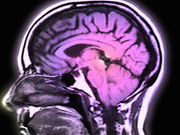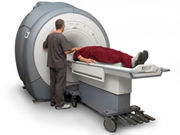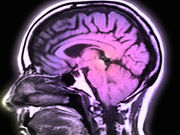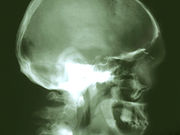Decrease Over Time in Incidence of Strokes in Men
Decrease driven by drop in ischemic stroke; incidence of ischemic strokes similar for men, women in 2010
Neuroanatomic Anomalies for Deletion, Duplication at 16p11.2
Deletion or duplication carriers have abnormalities, linked to cognitive, behavioral impairment
Impact of Video Games on Brain Varies With Game Type, Strategy
Participants using non-spatial memory strategy have reduced grey matter in hippocampus
Few Skull Radiation Patients Show Cognitive Impairment
Yet, a third report ambiguous results that may require more testing
Interactions Occur With Cannabidiol, Antiepileptic Drugs
Most observed mean level changes fall within accepted therapeutic range
Blood Pressure Variability Linked to Risk of Dementia in Elderly
Increased variability risk factor for dementia, vascular dementia, Alzheimer's, independent of BP
Resistance Training May Help Protect Nervous System in MS
Resistance training has a number of positive effects on the brain shown by MRI
Exposure to Flame Retardants May Lower IQ in Children
Findings based on review, meta-analysis assessing developmental exposure in children
Guidance Provided for Preventing Practice Billing Errors
Practices should have a compliance plan and policy and someone responsible for enforcing it
Neonatal Hypoglycemia Not Tied to Neurosensory Impairment
But increased risk of poor executive function and visual motor function at age 4.5 years



















